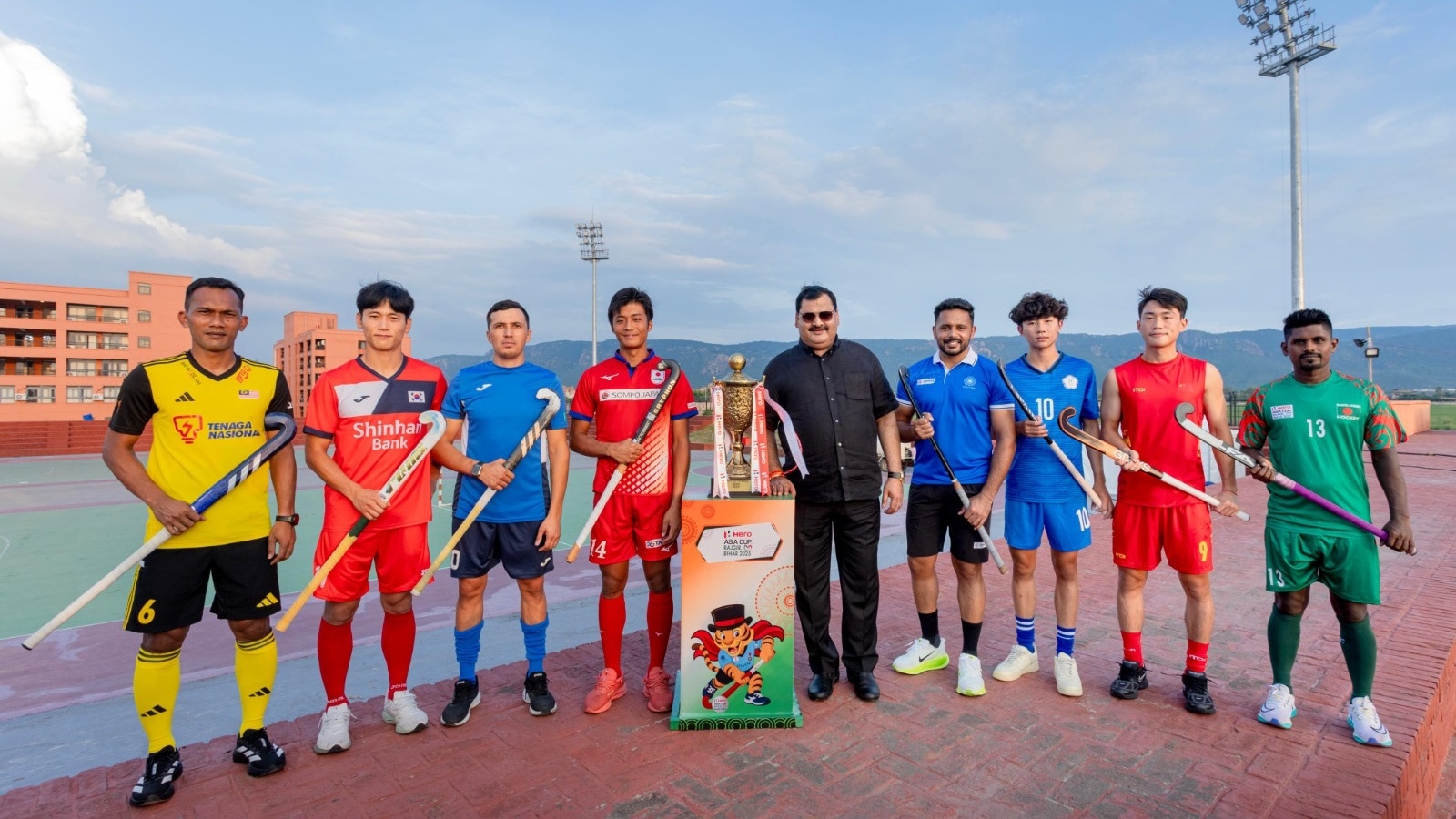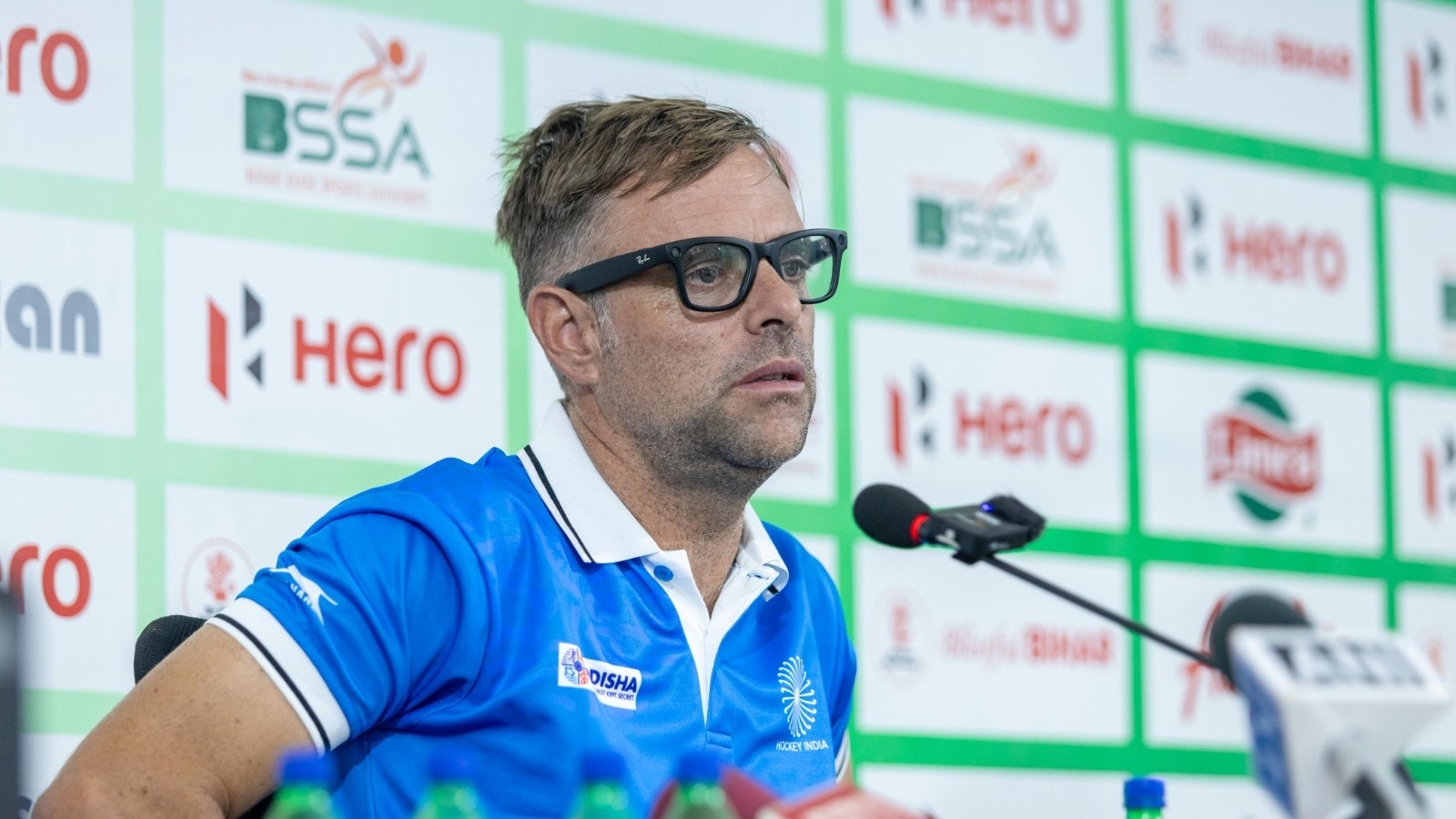Craig Fulton mentions it in passing but upon reflection on the stat he so casually hurls, it dawns that India’s dominance in Asian hockey has been more notional than real. “It’s been seven years,” he says, “that India last won the Asia Cup.” Is he surprised? “Well,” India’s hockey coach replies, “when I first arrived (in 2023), they hadn’t won the Asian Games in eight years. So, that was a surprise.”
It’s easy to gloss over these facts because India are now sitting at the big boys’ table of world hockey.

The back-to-back Olympic bronze medallists have floated in a different stratosphere than their struggling Asian rivals in the last decade. India have been the only Asian team in the world’s top 10 for the last few years and the sole representative from the continent at two out of the last three Olympics.
Story continues below this ad
But when it comes to tournament hockey against the Asians — whose collective slide — or stagnation — has coincided with India’s rise — India haven’t always managed to translate their on-paper superiority on the field. Making just two finals of the last four editions of the Asia Cup and the Asian Games tells a story.
These are sobering points for India heading into the Asia Cup in an excruciatingly hot and humid Rajgir, Bihar, starting Friday.
 It’ll be naive to expect that India will simply walk away with the title, especially because there is an added incentive of a 2026 World Cup spot for the champions. (Photo Credit: Hockey India)
It’ll be naive to expect that India will simply walk away with the title, especially because there is an added incentive of a 2026 World Cup spot for the champions. (Photo Credit: Hockey India)
Pakistan may have snubbed the tournament, citing security concerns, but South Korea, the team with the most Asia Cups, are here to defend their title. So are Malaysia, the perennial banana-skin opponent, and Japan, the former Asian Games champions.
China, with former India coach Roelant Oltmans as their assistant, will have a lot of intel on Harmanpreet Singh and Co., and tend to punch above their weight. Last year’s Asian Champions Trophy, where they reached the final and troubled eventual winners India, is just one such example.
Story continues below this ad
So, it’ll be naive to expect that India will simply walk away with the title, especially because there is an added incentive of a 2026 World Cup spot for the champions. Although that’s the level of dominance Fulton will hope his players will assert to assuage any concerns of a slump.
Bouncebackability test
The Asia Cup will not just test how India handle the favourites tag, but also the bounce-backability of the team. For the first time since he became the coach, Fulton will lead the team into a competition on a string of poor results that has threatened to wipe the aura of being Olympic medallists.
India lost seven out of eight matches in the European leg of the Pro League in June. They went to the competition in the Netherlands and Belgium — the co-hosts of the 2026 World Cup — hoping to finish first in the Pro League and qualify for the mega-event. But the losses, which left the team bruised, meant Fulton had to restrategise and the Asia Cup became the ‘main priority’. “We need to put all our eggs in that basket and push forward,” Fulton says.
In the Pro League, India weren’t as bad as the results indicate but some of the familiar problems resurfaced. Errors in crucial moments of the match were the most glaring issue and so was the team’s consistent troubles in closing out matches. In six matches, India conceded goals late in the fourth quarter to succumb to defeats. While that points to defensive fragility, the inability of the attackers to create and convert chances — especially in penalty corner situations after Harmanpreet was out with an injury — was also apparent.
Story continues below this ad
 Craig Fulton has resisted calls to infuse fresh blood into the team. (Photo Credit: Hockey India)
Craig Fulton has resisted calls to infuse fresh blood into the team. (Photo Credit: Hockey India)
Fulton has resisted calls to infuse fresh blood into the team. Unwilling to take any risks, he has gone with the tried and tested players who will face free-flowing, counter-attacking Asians over the next 10 days, demanding different skill-sets compared to playing against structurally strong Europeans. The patience of the midfielders and forwards will be tested as their opponents are likely to put men behind the ball to close gaps and look to hit India on the counterattacks, testing the defenders’ alertness.
Goalkeeper Suraj Karkera, who was a part of the team when India last won the Asia Cup in 2017, warns against taking any team lightly. “As we saw in the European Championship, France beat England! That was like the biggest upset,” Karkera says. “Everybody has details on each opponent, because of the data available. So, if you take any team lightly, it will cost you.”
Complacency has perhaps been one of the biggest reasons why India haven’t always translated their superiority on the field while competing in Asia. At the Asian Games, they were ruthless and got the job done at the Asian Champions Trophy last year despite playing just a month after the Olympic high.
Fulton will hope for more of the same on home soil. “We’ve just got to keep our eyes on the prize. Teams are getting better if we take our foot off the pedal. So no, the Asia Cup is full priority and we’re 100 per cent all in.”
India’s schedule:
August 29: vs China, 3pm
August 31: vs Japan, 3pm
September 1: vs Kazakhstan, 7.30pm
September 3 to 7: Super 4s and Classification matches









